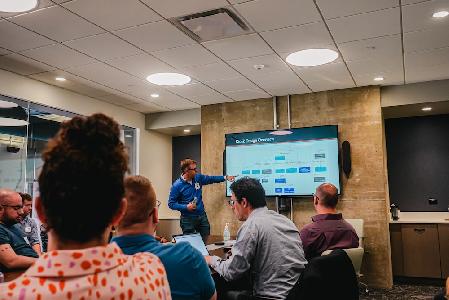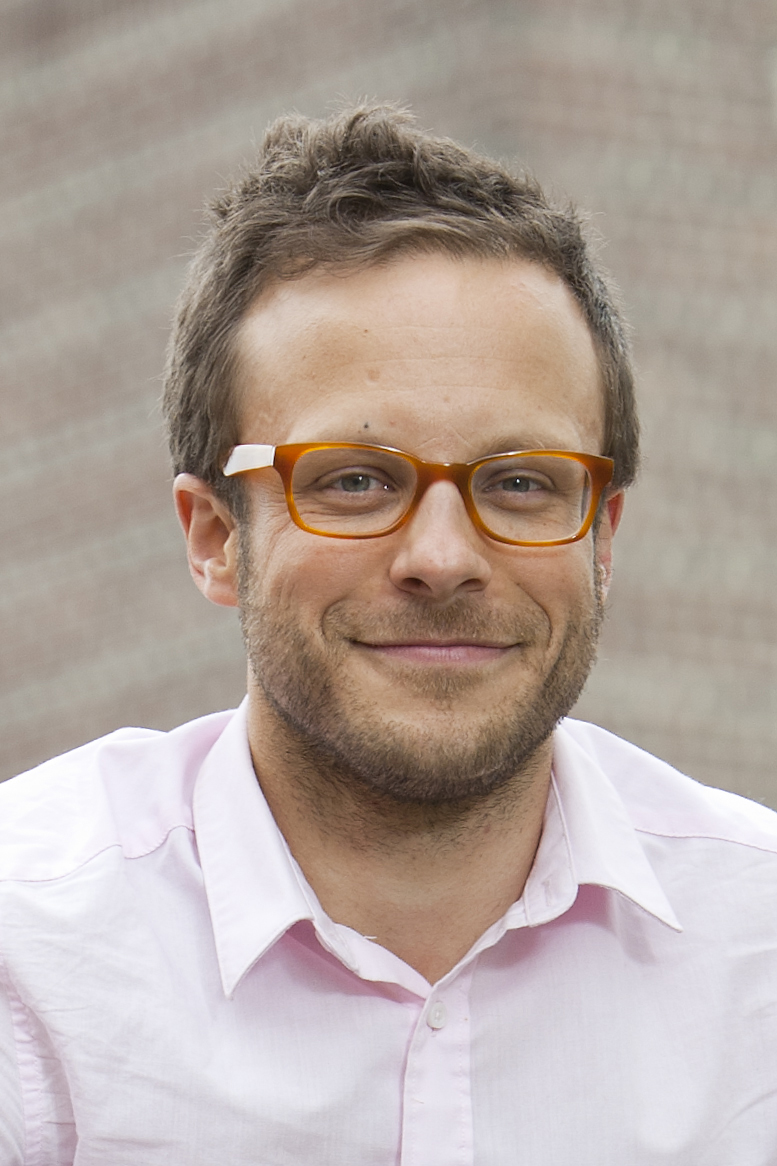Alex Gilliam is going back to basics.
With his organization Public Workshop, the social entrepreneur aims to create opportunities for the city’s youth to get involved with the design of their city: build a playground here, create a bus shelter there (find photos of Public Workshop’s work here). He encourages students to make things the old-fashioned way — with a handsaw, some nails and a power tool or two.
Gilliam is 38 (though you’d never guess) and was recently named one of Philadelphia Magazine’s Smartest People in Philadelphia. He’ll be teaming up with The Hacktory and Breadboard for the University City Science Center‘s upcoming Department of Making and Doing.
He told us he wants to make Philly “the national model of how we engage young adults.” We sat down with him to figure out what exactly that entails.
If you want to get involved – whether it be helping build Public Workshop’s next playground, interning with the organization or donating materials or tools, email Gilliam at alex AT publicworkshop.us
As always, edited and condensed for clarity.
Why is it important for youth to be involved in the design of their city?
We spend all this time creating all these mechanisms for trying to control teenagers, and the reality is the most fundamental condition of teenagers is to actually want to have some aspect of control of the world around them. So, if you actually let them have an impact on the design of their decrepit school, actually let them fix something, that’s huge! It’s like half the battle.

In the fall, Public Workshop built a playground in two weeks on the Horticultural Society’s pop-up garden in Rittenhouse Square.
You’ve spent lots of time traveling around the country doing this kind of work. Why did you decide to open up shop in Philly permanently?
Man, it’s the perfect mix between really acute needs and really great opportunities. So when I left [Philly] in 2004, I guess, everything was siloed, like people didn’t want to collaborate. People didn’t want to step out of the boundaries to do things.
But…in about 2006, I spent a short summer here teaching at Penn, and I felt like things were starting to tilt and so, now, yeah, it’s a crumbling school system, it’s forty thousand vacant lots. You have institutions in the city which are incredibly calcified and rules that are truly problematic, things that were set up for what I call “the organizational era.” Those things were broken.
On the other hand, we have one of the most progressive mayors in the country, you’ve got forty thousand vacant lots which is an opportunity, you have the first population bump [since 1950] and the crumbling school system — those are all opportunities.
What are the challenges in getting Public Workshop up and running and making it last?
I’ve been pretty much a one-man collaborative consultancy for a while, and I moved back here partially because I need to expand my capacity.
I think most change comes through small groups of motivated people, they grow into larger groups and so, I’m not interested in necessarily reaching everyone per se. I think you have to start small and you create these cultures of greatness and then you take young adults, for example, who are exceptional in their own ways, it doesn’t mean they’re just brilliant, but you lavish incredible amounts of support on them, place them under huge amounts of pressure and expect more than what anyone is asking of them and they do fantastic things. But that takes a degree of trust and of being in one place long enough to really do that.
Ultimately, I want to see Philadelphia have this civic design innovation corps.
Going back to working with your hands – rather than say, building software — it feels old-school, almost lo-tech. Tell me about that shift.
Look, I love technology and I’m super excited to have ready access to a laser cutter and all these other tools. But, I do bridle a bit at times with, you know, “Let’s put a Makerbot in every classroom in the country.” I’m like “Well, let’s just open shop class back up first.”
So, I’m really excited about the Department of Making and Doing because The Hacktory being there presents this real opportunity to push that way, way farther. I think, that melding of all that stuff together, that really really excites me and that’s a really great kind of snapshot of where I think both learning and design and innovation are gonna be from here on out – at least I’d like to see it be.
Updated 3:08 p.m. 11/30/12 to fix mistakes in transcription.
Join the conversation!
Find news, events, jobs and people who share your interests on Technical.ly's open community Slack

Philly daily roundup: Student-made college cost app; Central High is robotics world champ; Internet subsidy expiration looms

Philly daily roundup: Earth Day glossary; Gen AI's energy cost; Biotech incubator in Horsham

Philly daily roundup: Women's health startup wins pitch; $204M for internet access; 'GamingWalls' for sports venues


